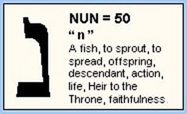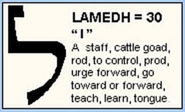A prayer at the end
We've reached the last stanza of Psalm 119 (the letter "Taw".) The letter "Taw" can mean a mark, sign, "x" or cross (think of a signature on a document), ownership, to seal, to covenant, to join two things together or the last...And this stanza is very much a "signing off."
And I have a confession to make... The psalmist is braver than I am. I have stressed about sending you 22 eDevotions on just one topic. The psalmist's poem is 22 stanzas times 8 verses each: a total of 176 verses on the value and importance of God's Word. I was afraid that people would be saying "yes, yes we get it: God's Word is important. Now move on!"
The psalmist has relentlessly reflected, exhorted, prayed, admonished and set the example concerning God's Word and the glory of the God who gives it to us.
Why? Because it's important.
So, here in the closing stanza there's one last prayer.
I think it's a good prayer to pray after personal devotions.
Here's my paraphrase:
- Help me apply what I've read (understanding)
- Help me to trust the promises You give me (supplication & promises)
- Let me speak and live for Your glory by living well (lips praise because Your decrees teach me)
- May obeying You be my song (tongue singing of Your righteous commands)
- Please help me as I walk in the path of Your precepts.
I think a summary is in order: The Psalmist is not a biblicist - he doesn't worship the Bible - he worships God and wants to live for His glory. He sees Scripture as a vital inspiration on the path of knowing God. It reveals God's character and guides our steps. He loves Scripture because it brings him closer to God.
| May my cry come before you, O LORD; give me understanding according to your word. May my supplication come before you; deliver me according to your promise. May my lips overflow with praise, for you teach me your decrees. May my tongue sing of your word, for all your commands are righteous. May your hand be ready to help me, for I have chosen your precepts. I long for your salvation, O LORD, and your law is my delight. Let me live that I may praise you, and may your laws sustain me. I have strayed like a lost sheep. Seek your servant, for I have not forgotten your commands. (Psalms119:169-176) |
I hope the series has been helpful and has been an inspiration (or a nagging reminder!) that Christians are people of the Book for the Glory of God.




 The letter "Tsadhe" has a wide range of connotations. It's associated with a fish-hook and all the thoughts that go with a lure: To pull or draw in, something inescapable or desirable. As such it also represents trouble and hunting. On a completely different tack it can also imply righteousness.
The letter "Tsadhe" has a wide range of connotations. It's associated with a fish-hook and all the thoughts that go with a lure: To pull or draw in, something inescapable or desirable. As such it also represents trouble and hunting. On a completely different tack it can also imply righteousness. 






